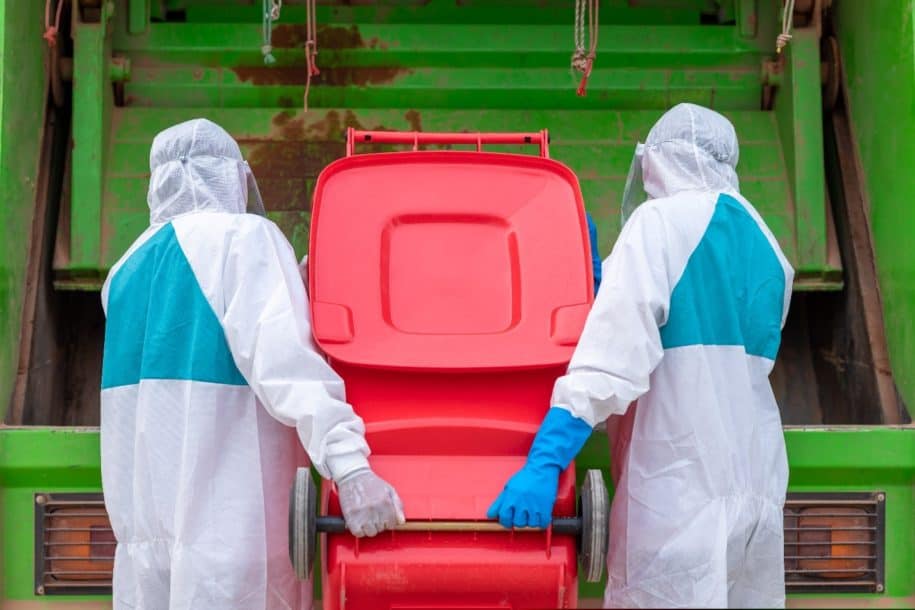Introduction
Proper waste management is crucial for maintaining public health and preventing environmental pollution. In the context of pharmaceutical waste, improper disposal can have significant consequences on both human health and the ecosystem. This article explores the impact of improper pharmaceutical waste management on public health in New York and highlights the importance of adopting effective waste management practices. With the rapid growth of the pharmaceutical industry and increasing concerns about drug resistance, it is essential to address this issue comprehensively.

The Impact of Improper Pharmaceutical Waste Management on Public Health in New York
Improper pharmaceutical waste management poses various risks to public health in New York. When medications are improperly disposed of, they can contaminate water sources, soil, and air, leading to adverse effects on human health. Additionally, if expired or unused medications are not disposed of properly, they may end up in the wrong hands or be accidentally ingested by children or pets.
Water Contamination and Its Consequences
Improper disposal of pharmaceutical waste can contaminate water sources such as rivers, lakes, and groundwater. When these contaminated water sources are used for drinking or irrigation purposes, it can lead to severe health consequences. Chemicals from medications can leach into the water supply and cause long-term health issues when consumed by humans or animals.
Best Waste Management Service in NY: Ensuring Proper Disposal
To mitigate the impact of improper pharmaceutical waste management on public health in New York, it is crucial to rely on the services provided by professional waste management companies. Finding the best waste management service in NY ensures that pharmaceutical waste is disposed of properly and in compliance with regulations. These services offer specialized hazardous waste disposal service in New York that guarantees safe handling and disposal of pharmaceutical waste.
Air Pollution from Incineration
Incineration is one method commonly used for pharmaceutical waste disposal. However, this process can release harmful pollutants into the air, contributing to air pollution. The burning of pharmaceutical waste releases toxic gases and particulate matter, which can have detrimental effects on respiratory health when inhaled.

New York Medical Waste Disposal: Alternative Methods
To minimize the impact of incineration on air quality, it is crucial to explore alternative methods for medical waste disposal. New York medical waste disposal companies offer innovative solutions such as autoclaving and chemical treatment. These methods effectively neutralize pharmaceutical waste without releasing harmful pollutants into the atmosphere.
Drug Resistance and Environmental Impact
Improper pharmaceutical waste management can contribute to the development of drug-resistant bacteria and environmental degradation. When medications are disposed of improperly, they may enter water bodies and soil, leading to the contamination of ecosystems. This contamination can disrupt natural processes and contribute to the development of antibiotic-resistant bacteria.
Pharmaceutical Waste Management: A Key Solution
Proper pharmaceutical waste management is essential to address the growing issue Medical Waste Disposal and compliance services of drug resistance and environmental degradation. By implementing effective waste management practices, such as proper segregation, labeling, and disposal methods, the risk of contamination can be minimized. It is crucial for healthcare facilities, pharmacies, and individuals to adopt comprehensive pharmaceutical waste management strategies that prioritize public health and environmental protection.
FAQs about Pharmaceutical Waste Management in New York
What is pharmaceutical waste?- Pharmaceutical waste refers to any unused or expired medications, drugs, or medical products that need safe disposal.
- Proper pharmaceutical waste management is important to prevent environmental pollution, protect public health, and reduce the risk of drug resistance.
- Individuals should not flush unused medications down the toilet or throw them in regular trash bins. Instead, they should utilize take-back programs or follow specific guidelines provided by local authorities for safe disposal.
- Yes, New York has specific regulations in place to ensure the proper management and disposal of pharmaceutical waste. It is important for healthcare facilities and pharmacies to adhere to these regulations.
- Improper pharmaceutical waste disposal can lead to the contamination of water bodies and soil, which can harm wildlife populations and disrupt ecosystems.
- Healthcare facilities should prioritize training staff on proper waste segregation, labeling, and disposal methods. They should also consider partnering with professional waste management companies to ensure compliance with regulations.
Conclusion
The impact of improper pharmaceutical waste management on public health in New York cannot be underestimated. Water contamination, air pollution, drug resistance, and environmental degradation are just some of the consequences that arise from improper disposal practices. To mitigate these risks and protect public health, it is essential to prioritize proper pharmaceutical waste management. By utilizing the best waste management services in NY and adopting comprehensive strategies, we can minimize the impact on public health and create a safer environment for all.